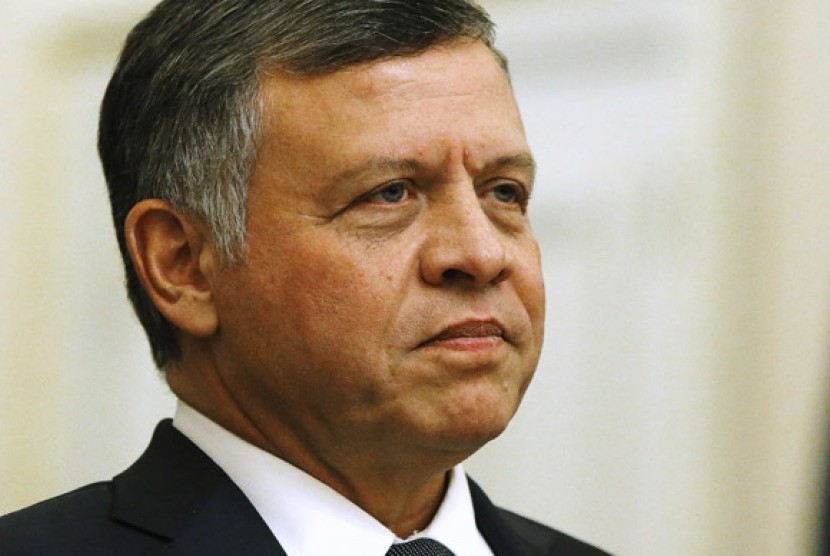REPUBLIKA.CO.ID, AMMAN -- King Abdullah II of Jordan on Saturday called for intensified Arab efforts to support the Palestinians following a decision by U.S. President Donald Trump recognizing Jerusalem as the capital of Israel, the state-run Petra news agency reported.
At a meeting with several Arab foreign ministers, the king said there was a need for more efforts to support the rights of the Palestinians in preserving their legal and historic rights in Jerusalem and in creating their independent state with East Jerusalem as its capital.
The Jordanian leader said the issue of Jerusalem should be settled through negotiations and as part of a lasting peace between the Palestinians and the Israelis based on the two-state solution, the international resolutions and the Arab Peace Initiative.
He underlined the need for supporting the Jerusalemites and protecting the Arabic identity of the city as well as the holy Islamic and Christian sites.
Jordan, he said, will continue to safeguard the holy sites in the city.
Discussions also covered best means to face the consequences of the U.S. decision that violates international resolutions.
In a press conference following a meeting of Arab foreign ministers in Amman, Jordanian Minister of Foreign Affairs Ayman Safadi reiterated the Arabs' rejection of the U.S. decision.
Rejecting any Israeli unilateral measures, he said the Arabs will push for a global recognition of Palestine.
The minister added that the Arabs will exert more efforts to curb any further recognitions of Jerusalem as the capital of Israel, adding that there will be no peace and security in the region without creating an independent Palestinian state with East Jerusalem as its capital.
"The situation is difficult and we are taking well-studied steps ... our message is that Arabs are committed to peace and that is through the two-state solution," said Safadi during the conference.
Arab League Secretary General Ahmad Aboul Gheit said during the conference that the Arab states made several successes at the Security Council and the UN General Assembly.
There are no options but to commit to peace and peace treaties, Aboul Gheit said, adding that the Arab foreign ministers discussed in their Amman meeting means to deal with the U.S. decision.



